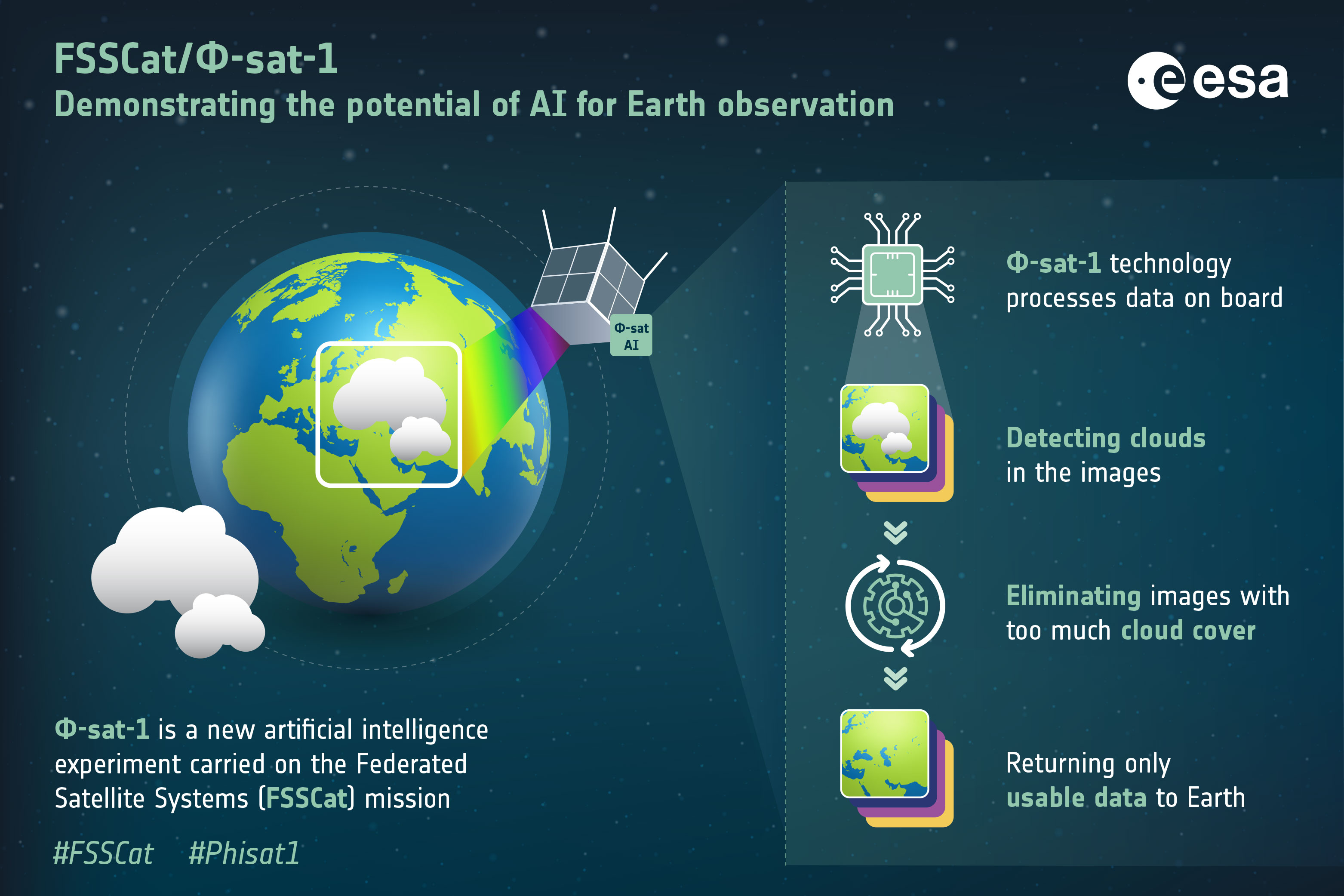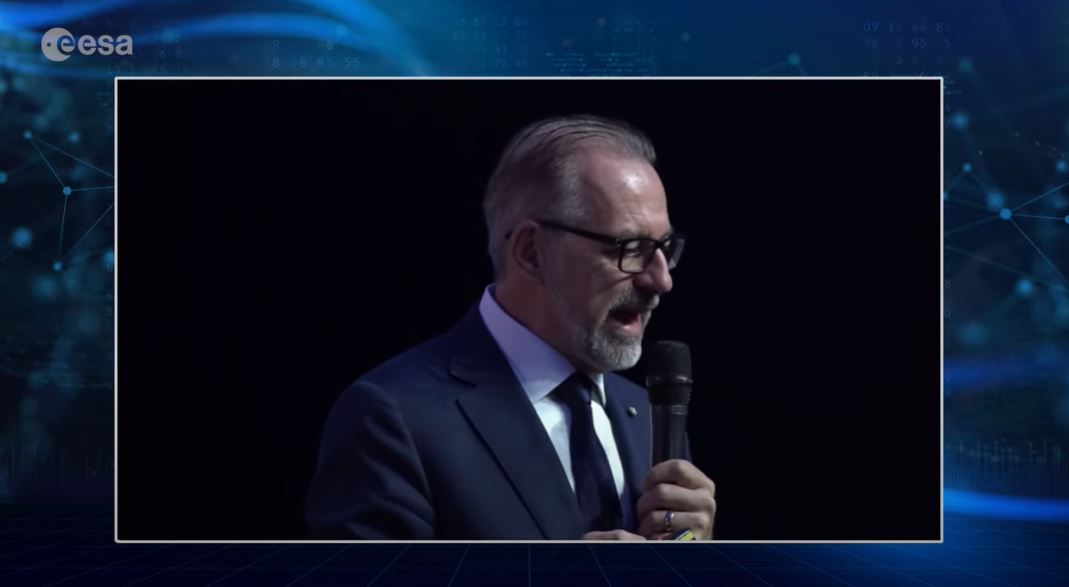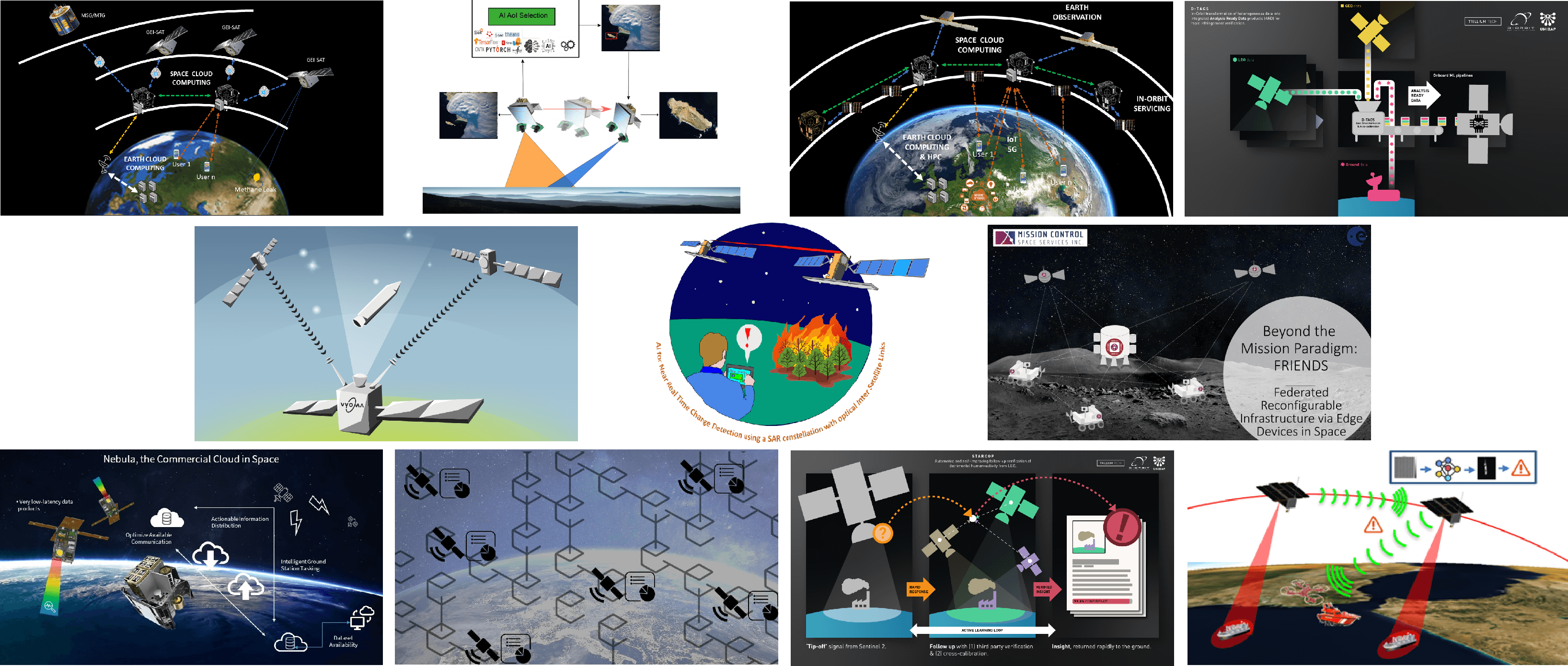Smarter Satellites: ESA Discovery Accelerates AI in Space
Could we capitalise on the Earth-based digital revolution to make our satellites smarter?
ESA Discovery is funding 12 projects that will explore the potential of applying the latest developments in artificial intelligence (AI) and advanced computing paradigms to make satellites more reactive, agile and autonomous. This could generate new practical applications that support life on Earth and our exploration of other planets.
Over the last decade, rapid advances in computing techniques, combined with exponential growth in the amount of data being collected, have led to a true revolution of AI feeding on big data on Earth.
ESA launched the first artificially intelligent European Earth observation mission in September 2020. The mission consisted of two CubeSats, one of which carried the ɸ-sat-1 artificial intelligence experiment on board. ɸ-sat-1 enabled the mission to automatically discard cloudy images and send only useful data down to Earth.
Then, in April 2021 ESA Discovery invited business and academic communities to propose innovative ideas to fly onboard ESA's OPS-SAT mission, which is open to the public to experiment with. AI had already been used on OPS-SAT to rapidly process images of Earth in flight and to fully automate the mission; some of the new ideas also involve a variety of AI tools for novel applications.
The latest step came in October 2021, when the Discovery element of ESA's Basic Activities – working together with Φ-lab and ESA's new commercialisation department – launched a call for ideas on how we can make space systems more powerful using novel computing techniques and AI. The most interesting ideas have now been selected for funding.
"Following the announcement of the call during Φ-week by ESA's Director General, industry and academia could propose projects addressing innovative technologies and applications," explains Gabriele Meoni, an ESA Φ-lab research fellow focusing on AI. "We received a really interesting suite of ideas, addressing a variety of space domains, showing that there is big interest from European stakeholders on cognitive computing in space."
Applying modern computing techniques – for example, processing data directly on board satellites – could transform space activities and the space economy in the coming decade. The ability to make satellites smarter offers significant benefits for future space missions and business models.
“We intentionally made the scope of the campaign very broad to explore the full potential of this new computing paradigm,” continues Gabriele.
Leopold Summerer, head of ESA's Advanced Concepts and Studies Office adds: "The call for ideas was driven by the vision of ESA Agenda 2025, which calls for Europe to step up its role in space, support commercialisation and help create new space markets."
"We think that in-space cognitive computing offers substantial commercial potential for first movers, and had planned to fund up to ten teams to develop their ideas in more detail," continues Leopold. "However, European industry and academia proposed so many good ideas that we decided to increase the number of funded projects to 12. We expect these to help Europe take a step further towards fully benefitting from the still-emerging field of cognitive computing in space."
"The selected ideas involve new technologies developed outside the space sector – including blockchain, edge computing, and neuromorphic computing (inspired by the workings of the human brain)," says Gabriele. "The ideas address amazing applications across the space domain including early detection of methane gas and natural disasters, autonomous rovers on the Moon, space surveillance and tracking – all because information could be processed more efficiently."
The 12 projects are being funded by ESA's Discovery element; each will run for six months with a budget of 100 000 EUR. All are financed using the ESA Initial Support for Innovation (EISI) scheme, which focuses on knowledge and skill development rather than achieving specific results.
"What is the potential of new computing techniques in space? What are the new applications, or new science to be carried out? What would their business value be? These studies will help ESA further explore how cognitive computing could reshape the future of space missions," concludes Gabriele.




